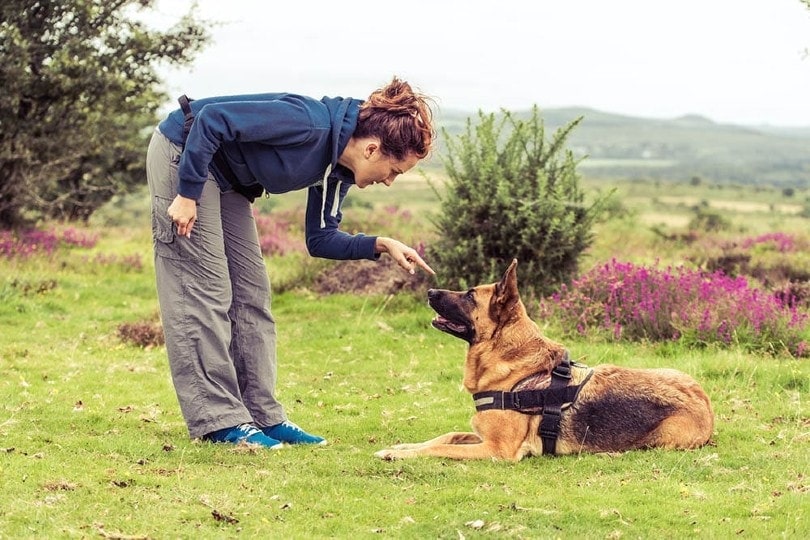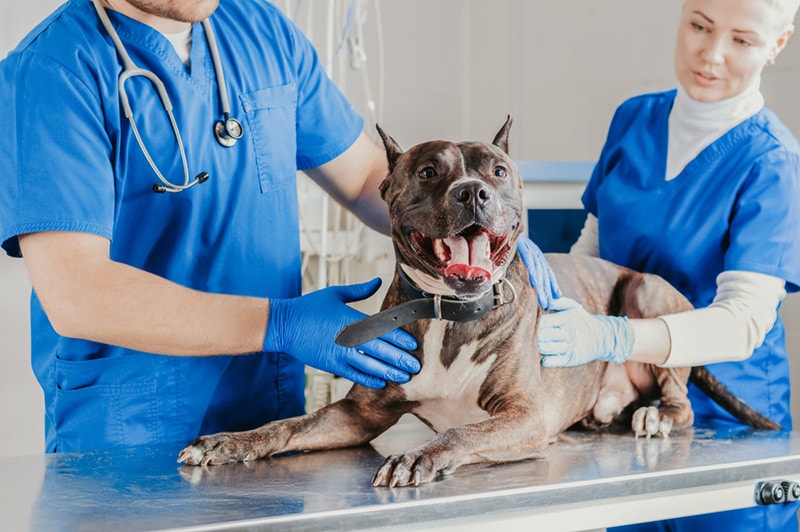Why Are Dogs Afraid of Vacuums? What You Can Do to Help Them

Updated on
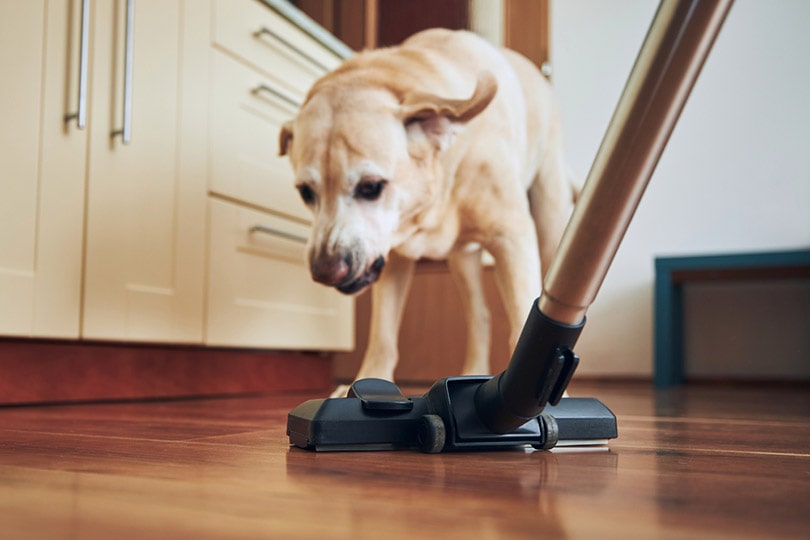
The dreaded vacuum. As soon as the dog sees you headed to the broom closet to get the vacuum, your furry friend becomes a monster and begins to bark, growl, and bite at it. Some of them tense up and hide, and others couldn’t care less. And, as if the task of vacuuming is not a dreaded chore to begin with, now you may have to deal with a dog that is demonstrating aggressive or fearful behavior toward it.
So, this begs the question, “Why are dogs afraid of the vacuum, and what can I do to help them?”
Why Are Dogs Afraid of Vacuums?
While some dogs do not seem to be phased by the vacuum cleaner, others react to it like thunder and fireworks. They are loud and appear threatening. The ones that are self-propelled are especially unnerving because they are not only noisy, but they also appear out of nowhere and then disappear. The unexpected movements can be alarming for a dog.
One of the most common reasons dogs have a negative reaction to the vacuum cleaner is that they are not exposed to it gradually. Suddenly this loud, obnoxious apparatus is being moved here and there and appears to be attacking everything. Of course, your canine becomes fearful or protective.
In some cases, your dog may have a nervous and fearful nature. These are the dogs that are fearful overall. They get startled easily and are nervous with loud noises and things that are strange to them.
Other times, it may be because the dog had a negative experience with a vacuum cleaner.
And then we have the working dog breeds who think that the vacuum is disobedient. To a working or herding dog, the vacuum appears to be cattle or sheep that are straying and need to be put in line. So, they will begin to chase and bark at the vacuum. This can appear to be fear, but it is not; it is instinctual.
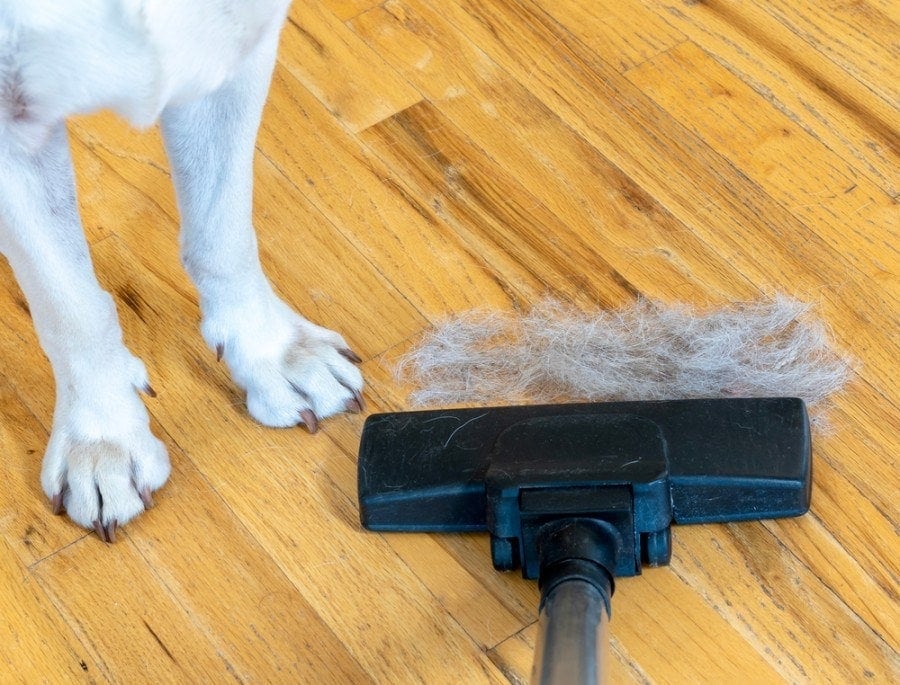
Signs Your Dog May Be Fearful of the Vacuum
- Urinating
- Hiding in another room or under the furniture
- Barking
- Pacing
- Drooling
- Looking for an escape route
- Destructive chewing
How You Can Help Your Dog if It Has Vacuum Phobia
Desensitizing methods may help to minimize the fear of the vacuum. It will depend on the severity, however. You can praise the dog and feed it some treats while slowly exposing it to the vacuum.
- First, put the dog and the vacuum in the same room while it is not turned on.
- Next, you should slowly move the dog closer to the vacuum by setting treats closer and closer and then eventually on the vacuum while it is turned off.
- Eventually, try turning the vacuum on while in the same room with the dog.
As with any training or desensitizing methods, it can be time-consuming, and you may get frustrated. Do not be harsh with them and practice patience so the dog does not become more stressed.
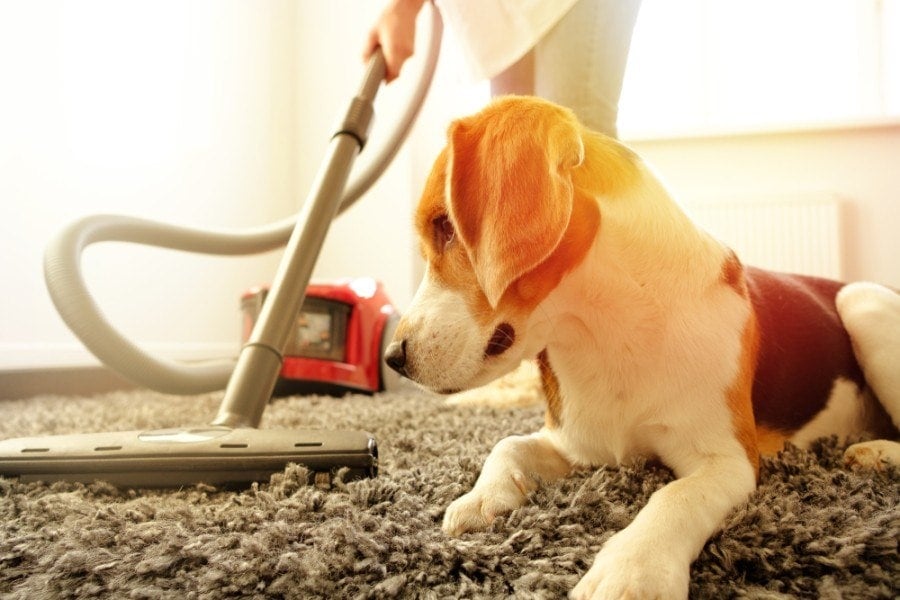
Manage the Dog’s Environment
You may not want to push the issue for dogs that are overly sensitive and nervous. In that case, you can manage the dog’s environment by putting it in a closed room while vacuuming. Give it something to occupy itself, like a puzzle toy, and turn on some music or the television.
Conclusion
While not all dogs will react to the vacuum cleaner in the same way, most of them will have some sort of reaction to this large piece of machinery that is making loud noises and invading their space. Remember, some dogs are naturally nervous and will run and hide from it, and others will herd it because it is instinctual. Either way, there are methods to desensitize your dog so it becomes comfortable with the vacuum, or you can control the environment to help relieve the dog’s stress. This will make for a more pleasant cleaning experience if there is such a thing!
- You may also like: Best Canister Vacuum for Pet Hair – Reviews and Top Picks
Featured Image Credit by Jaromir Chalabala, Shutterstock

